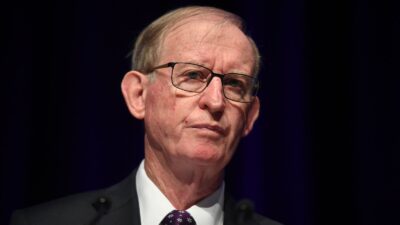-
Sort By
-
Newest
-
Newest
-
Oldest
Global pension funds are facing increasing political pressure to alter investment strategies, according to The Thinking Ahead Institute (TAI), with governments able to exert “considerable influence” on net zero policies and domestic investment.
You can only see it if you look in the right places, but carbon mispricing could have massive implications for how risky an investment really is. Meanwhile, large language models are reading between the lines of earnings transcripts.
New ASFA head Mary Delahunty says the association will collaborate with other industry bodies and leverage its large operational knowledge base to create more value for the mix of retail and industry funds and service providers that make up its membership. But how many voices does super need?
The $170 billion super fund wants to be a lot bigger, and its teams are trying to get ahead of infrastructural demands from within the fund to win back basis points that can be returned to members.
The ups and downs of 2023 have shifted the fortunes of active managers in the eyes of the big institutional investors that hold the keys to trillions of dollars in retirement savings. But they’re still fretting volatility and valuations.
WTW has won the job of carrying out a statutory probe into the policies and operational and investment processes of New Zealand’s sovereign wealth fund for an unprecedented repeat performance.
Big super funds still aren’t really involved in the large nation-building projects that could make Australia a renewables powerhouse. Getting them to “cross the Rubicon” will take initiative from infrastructure managers and leadership from Australia’s sovereign wealth fund.
The first chair of the Future Fund has rubbished “populist pleas” to use the money in Australia’s sovereign wealth fund for pet causes, saying that they are “infused with an unrealistic optimism of the likelihood of success”.
The market “ran hard” in the last quarter of 2023 and so did Australia’s sovereign wealth fund, making a cool $15.6 billion for the calendar year even as it effected sweeping changes to the portfolio.
Super funds rode the late 2023 risk rally to spectacular effect, with the $13 billion Mine Super first in Chant West’s calendar year league table and a host of other small funds also making the top 10.
Markets are “overly sanguine” about how easy it will be to achieve the last mile of disinflation. The Fed might not cut rates rapidly, and if they do we might not like the reasons.
Interest rates aren’t going back to what the current generation of investors consider ‘normal’ anytime soon, according to Oaktree’s Howard Marks, and different strategies will outperform in the years to come.
















